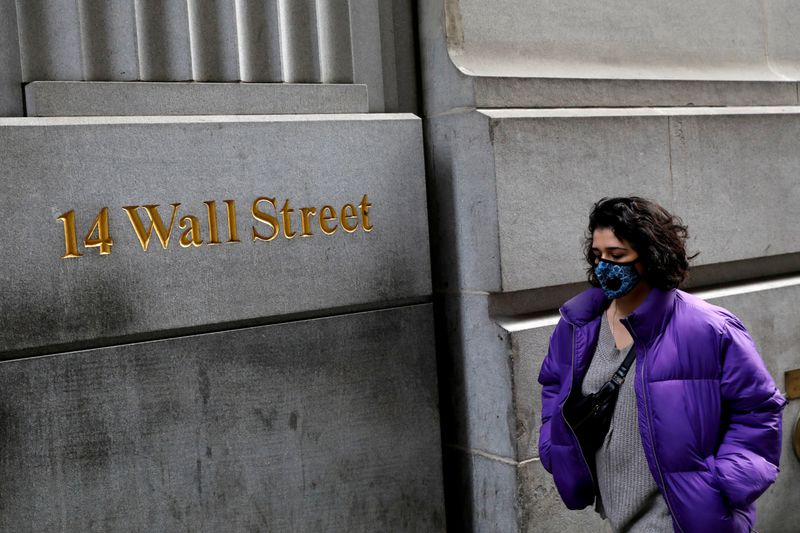By Megan Davies
NEW YORK (Reuters) - The words "bear market" and "recession" are being used with increasing frequency as investors try to assess how badly the coronavirus outbreak will damage global growth and to what extent it could further weigh on asset prices.
The accelerating outbreak has stoked violent swings in markets around the world. Many investors say there is little clarity on what trajectory the virus will take and how effective government measures will be, making it difficult to gauge how much economic damage has already been baked into asset markets.
Rabobank in a note earlier this week said the initial strategy in most Western countries, which was to do nothing and tell people all is well, was not effective.
As the virus has spread in the United States, investors have become increasingly worried about a number of factors, including what some have called an uneven government response, confusion about the number of cases in the country and concerns that fear of contracting the virus or government-imposed limits on movement will hit consumer spending and damage the economy.
"The market has not caught up to the facts. We are thinking another 20% or so lower in equity markets this year," said John Lekas, CEO and Senior Portfolio Manager at Leader Capital, who sees a recession as likely. "Basically we just jumped off a 20 story building and we are at floor 10."
U.S. stocks have fallen about 12 percent from their closing high on Feb. 19. S&P futures opened on Sunday night sharply lower and were last trading 4.5 percent lower, after oil plunged around 30 percent, following Saudi Arabia's starting a price war with Russia. That intensified fears of credit problems.
"Between oil and the virus, the headlines are creating hysteria right now," said Ken Polcari, senior market strategist at SlateStone Wealth LLC in Jupiter, Florida. "High yield will get crushed and credit defaults will be the talk all over again by week's end if oil doesn't rebound."
Nineteen people have died out of about 450 reported U.S. cases of the novel coronavirus, which originated in China and rapidly spread around the world. More than 3,600 globally have been killed.
Analysts at Deutsche Bank (DE:DBKGn) outlined a scenario where the benchmark S&P 500 index falls into a bear market - commonly defined as a price drop of 20% or more from highs - if the disease is not contained quickly. The index was down around 8% from its peak on Friday.
"The market has only moved from being significantly overvalued ... to being modestly so," analysts at the bank wrote. "Equities are yet to price in any drops in macro and earnings growth from the expected slowdown in activity."
The bank's main scenario forecasts a drop of 15% to 20% in U.S. stocks followed by a rebound. A more pessimistic outlook sees a larger drop and a recession.
TRAIN WRECK
The explosion in market volatility has come as the bull market marks its 11th year. The S&P 500’s lowest close following the 2008 financial crisis was 676.53 points on March 9, 2009. The index's most recent high was 3,393 on Feb. 19.
A report from Bank of America Merrill Lynch (NYSE:BAC) compared the coronavirus to a "slow-moving train wreck" where the "market comes slowly and progressively to the realization of the magnitude of the events unfolding."
Michael Purves, CEO at Tallbacken Capital Advisors, said the tech sector "is still too strong" and added that "until we see some stronger selling in tech, we won’t be satisfied that late-to-the-party sellers are done."
Some analysts are focusing on potential pressures on cross-currency basis swaps, which institutions use to hedge currency exposure and obtain access to foreign currency funding, and other instruments that function as the "plumbing" of money markets. Others are worried about the credit markets and businesses' access to cash.
Investors in the coming week will look to a raft of U.S. data, including on small business optimism and consumer prices, to gauge what kind of shape the U.S. economy was in last month, before the coronavirus started spreading so widely and quickly.
The most serious threat to the economy may not come from the amount of cases or deaths, but rather the toll that disruptions to daily life, curtailed travel activity and possible government restrictions could take, analysts at Oxford Economics said.

The firm now sees a 35% chance of a recession occurring in the United States this year, up from an estimate of 25% it made in early January.